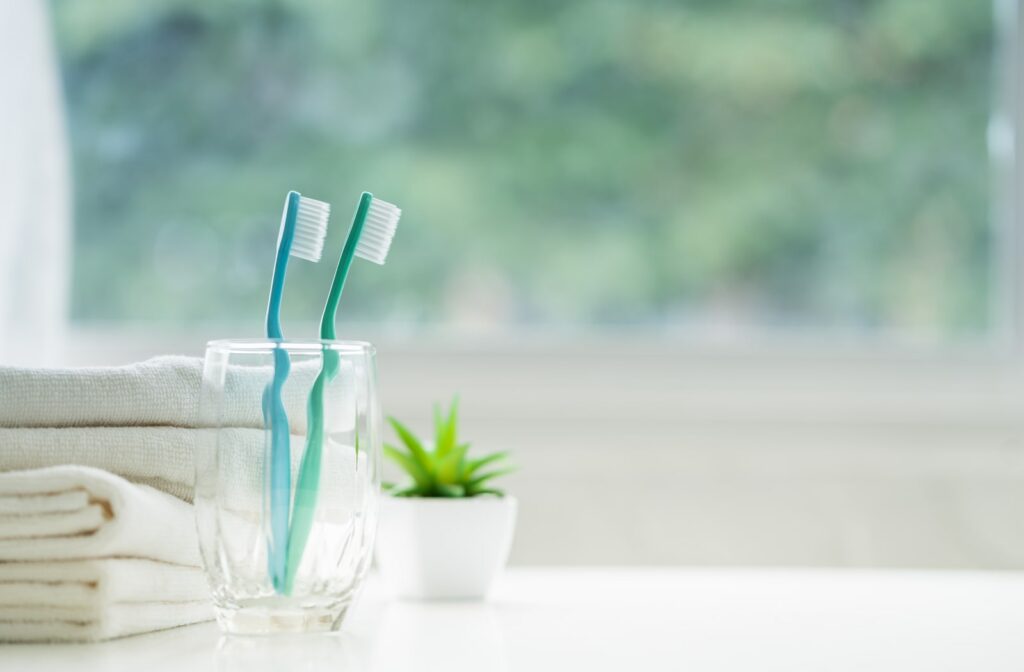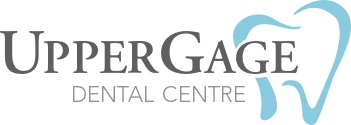It’s common knowledge to brush your teeth twice a day and floss daily. But, as a child or an adult, do you remember your dentist telling you when to change your toothbrush?
Proper dental care starts early in a child’s life and continues throughout your adult years. Healthy gums and teeth come from a healthy cleaning routine that includes your toothbrush. So, how often should you change your toothbrush?
Types of Toothbrushes
A toothbrush is usually a plastic device with a handle attached to the head consisting of a small tuft of bristles used for cleaning the teeth and gums. Toothbrushes are available in different sizes and come in manual, battery, or electric forms.
Electric toothbrushes are different than manual ones because they vibrate and rotate at high speeds. Rotation and vibration create more micro-movements that lead to more plaque removal.
When to Replace Your Toothbrush?
When choosing a toothbrush for a child, the size should be proportionate to their mouth to navigate the small spaces. Soft, round bristles work best.
Brushing is not a fun chore for most children, so letting them choose whatever toothbrush they prefer can help accomplish better oral care from a young age. It’s good practice to check their toothbrush for fraying and do a second brushing to ensure all areas in the mouth are clean and free of plaque.
The bristles are generally the first area to show wear and tear, especially if you brush too hard. The general rule of thumb when brushing is that it should be gentle, or else it can hurt the gums.
Any sign of bent or worn bristles indicates their inability to clean the teeth well. According to the recommended guidelines, you should replace your toothbrush every 12 to 16 weeks or 3 to 4 months.
Replace your toothbrush sooner if it looks frayed. Other reasons to replace your toothbrush include:
- Electric toothbrush bristles are shorter and may fray quicker, but only the head needs replacing every 12 weeks or sooner.
- You were sick with a viral or bacterial infection, such as strep throat.
- Children tend to brush harder and bite down on the bristles, causing them to fray sooner.
- If someone else uses your toothbrush, sharing toothbrushes can expose you to different bacteria than your own.
How to Care for Your Toothbrush
Even if you replace your toothbrush every 3 months, there are some things you can do to care for them better. These include:
- Never share your toothbrush with anyone.
- Store your toothbrush separately from others or, if in the same container, keep their heads away from each other to avoid touching and bacterial cross-contamination.
- Rinse your toothbrush in water after every use and store in a vertical position to air dry.
- Keep your toothbrush far from the toilet to avoid toilet plumes.
- Don’t store your toothbrush in a closed container as this can cause mould and bacterial growth.
What Are the Risks to Not Changing Your Toothbrush Often
Dental exams, among other things, check your gums for gum disease, check your teeth for cavities, and keep you on track for excellent oral health. In addition to that, so does your toothbrush.
But your toothbrush is not meant to last a long time. Here is what can happen if you don’t replace your toothbrush as recommended:
- Even if you rinse it after every use, your toothbrush can accumulate potentially harmful bacteria over time and may make you sick.
- As the bristles fray and lose their shape, they also lose their efficacy and cleaning ability, leading to more plaque buildup. A study concluded that toothbrushes used over a period of 3 months are ineffective in removing plaque. It proves that toothbrushes lose their effectiveness with use.
- A buildup of plaque can cause gingivitis or gum disease.
Swap out Your Toothbrush for Healthier Teeth & Gums
By brushing at least twice a day for a minimum of 2 minutes every time, your toothbrush should start to show deterioration in the bristles after a few months. Be proactive by buying your toothbrushes in bulk, putting a reminder every 3 months to replace them, or checking for signs of wear.
Good oral hygiene habits start at home and continue in your dentist’s office. Upper Gage Dental Center offers comprehensive dental exams and cleanings for the whole family to ensure you achieve your oral health goals. To learn more about our services, request an appointment today.



